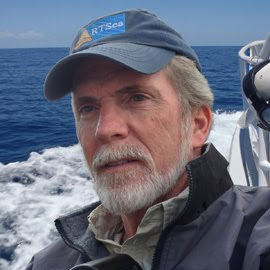 Over the past several years, we have been seeing progress made in conserving sharks through the establishment of shark sanctuaries or protected zones that have included entire island nations. The latest measure has been taken by the U.S. state of Florida which initiated a prohibition on the catching of tiger sharks and three species of hammerhead sharks inside Florida state waters. Additionally, we have seen legislation aimed at shark fin bans which, at best, puts pressure on the shark finning industry and, at the very least, forces them to fold up their tents and move elsewhere.
Over the past several years, we have been seeing progress made in conserving sharks through the establishment of shark sanctuaries or protected zones that have included entire island nations. The latest measure has been taken by the U.S. state of Florida which initiated a prohibition on the catching of tiger sharks and three species of hammerhead sharks inside Florida state waters. Additionally, we have seen legislation aimed at shark fin bans which, at best, puts pressure on the shark finning industry and, at the very least, forces them to fold up their tents and move elsewhere.As positive as these steps are, they are regional efforts, globally-speaking, and many sharks species, particularly those considered the most endangered, are known to travel great distances whether traveling along migratory routes or randomly covering a lot of ocean territory and, in so doing, they move in and out of protected areas frequently.
Since these sharks will move in open international waters, it therefore becomes the responsibility of multinational fishery management organizations to ensure that sharks are being properly managed and, in many cases, prohibited from commercial shark fishing.
This could not be any more truer than in the Atlantic Ocean. A just-released report from Oceana cites as much as 75% of the migratory sharks in the Atlantic are classified as threatened by the
 International Union for the Conservation of Nature (IUCN) but less than 1 percent are protected by the organization that is most responsible for protecting these sharks.
International Union for the Conservation of Nature (IUCN) but less than 1 percent are protected by the organization that is most responsible for protecting these sharks.The ICCAT, the International Commission for the Conservation of Atlantic Tunas, is that responsible organization. According to Oceana, "The United Nations Convention on the Law of the Sea (UNCLOS), the primary international maritime treaty, establishes that fishing nations must cooperate to ensure the conservation of highly migratory species both within and beyond their exclusive economic zones, through appropriate international organizations."
"Because highly migratory species require international cooperation for effective management, Regional Fisheries Management Organizations (RFMOs) have been established to manage fisheries for these species with the goal of long-term sustainability. In the Atlantic Ocean and adjacent seas, the International Commission for the Conservation of Atlantic Tunas (ICCAT) is the most relevant and appropriate international organization to manage highly migratory species, including sharks."
Unfortunately, ICCAT's scorecard has not been a particularly winning one. Heavily influenced by commercial fishing interests, the organization has set catch limits for tuna that are consistently way below levels recommended by their own scientific advisers, and only a few species of sharks have been afforded any degree of protection.
 The ICCAT has been holding its 22nd Regular Meeting of the Commission this past week in Istanbul, Turkey and Oceana is there to present the 48 member nations with the facts and to make recommendations as to actions ICCAT should be taking regarding Atlantic Ocean sharks.
The ICCAT has been holding its 22nd Regular Meeting of the Commission this past week in Istanbul, Turkey and Oceana is there to present the 48 member nations with the facts and to make recommendations as to actions ICCAT should be taking regarding Atlantic Ocean sharks.
Just how many sharks are being taken? Well, trying to answer that question is also part of the problem because as many as half of ICCAT's member nations did not report any shark catches in 2009 - there's no data. Based on what figures are available, combined with scientific and anecdotal observations, the current state of affairs is not good. But until there is reliable data from all member nations, the full extant of the problem can not be appreciated - which is just fine with the commercial fishing industry representatives whispering in the ears of ICCAT delegates.
In its 10-page report, Vulnerable Sharks in the Atlantic Ocean: The Need for International Management, Oceana puts forth the following recommendations to the ICCAT:
- Prohibit retention of endangered or particularly vulnerable shark species, especially porbeagle and silky sharks.
- Establish science-based precautionary catch limits for blue and shortfin mako sharks.
- Require reporting of catch data as a prerequisite for landing a particular shark species.
- Improve the ICCAT finning measure by requiring that sharks be landed with their fins wholly or partially attached in a natural manner.
Perhaps someday, with regional protections in place, a growing public awareness and clamor as to the problem, and catch levels reaching limits that are economically unsupportable, the ICCAT will live up to its environmental responsibilities. The sharks are betting their lives on it.
Download Oceana's report: Vulnerable Sharks in the Atlantic Ocean.
Read about the status of Atlantic sharks at Ocean's website.

















No comments:
Post a Comment